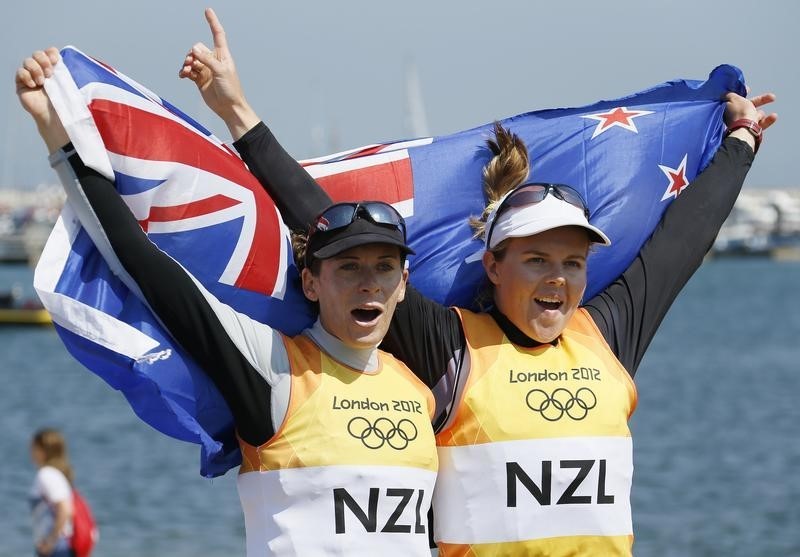By Greg Stutchbury
WELLINGTON (Reuters) - Olympic sailing champion Jo Aleh's preparations for the Rio de Janeiro Games have included plenty of planned trial and error, which has led to a level of consistency that places her and Polly Powrie among the favourites in the women's 470.
New Zealand's Aleh and Powrie are the top-ranked duo in the centreboard 4.7m-long dinghy heading into next month's Games, having finished no lower than fourth in 22-of-24 World Sailing events they have competed at since the London Olympics.
That consistency has not come about by accident, Aleh told Reuters from Auckland on Tuesday as she, Powrie and coach Nathan Handley worked to smooth out the fickleness of sailing, a sport reliant on interpreting ever-changing conditions.
"A lot of our sport is all about decision making made on the fly," the 30-year-old Aleh said. "You're presented with a set of circumstances and you have to make a split-second decision.
"The more you've been presented with that in the past, the more likely it is going to be the correct decision... so we have just been slowly trying to work on our areas of weakness.
"I think that's why we have had some bad regattas at times. It was about getting it right or getting it wrong."
'Team Jolly', as she and Powrie are known in cyberspace, have mostly got it right over the past four years.
Their run of results includes winning their first world title in La Rochelle in 2013 and a silver at the world sailing championships in 2014 in Spain.
They also clinched silver at the 470 world championships earlier this year in Argentina and were third at the Olympics test event in Rio last year.
"We feel that we have been working towards ticking off the things we needed to do and by doing that you get pretty consistent results," Aleh added.
"Last time (in London), we were really inexperienced, but this time we have a lot more racing behind us so that even when its going bad we can pull it back.
"We're a solid enough team now that it doesn't matter what happens we will still be there."
Aleh has acknowledged that conditions in Rio, will be tricky and why they, and many of their main competitors like Austria's twice world champions Lara Vadlau and Jolanta Ogar and current champions Camille Lecointre and Helen Defrance from France, spent so much time training there in the last four years.
Aleh said the two open water courses in Rio have bigger waves and stronger winds, while wind for the three inshore courses were less predictable because of the towering hillsides surrounding Guanabara Bay.
"Hopefully we have all spent enough time in Rio. There is quite a lot of variety," she said.

"But knowing the conditions, knowing how to set the boat up and knowing how to race in it and the more time we had in Rio, the better."